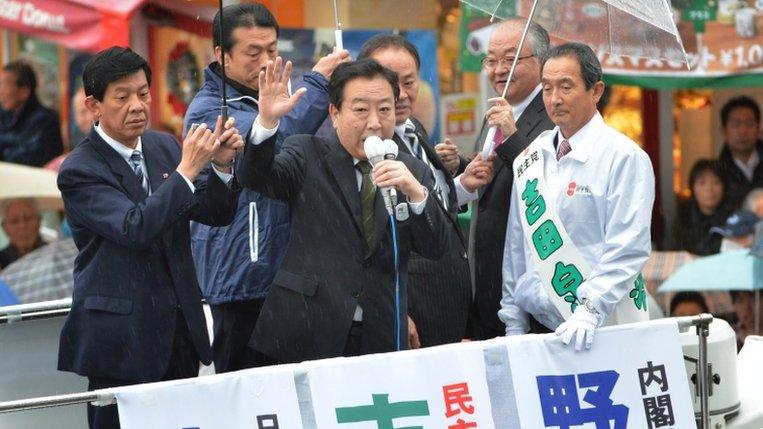Japan's Shinzo Abe unveils cabinet after voted in as PM
- Published
Shinzo Abe said he feels "refreshed" for the task ahead
Japan's new Prime Minister Shinzo Abe has unveiled his cabinet as he begins the task of economic revitalisation.
The cabinet was named shortly after parliament voted for Mr Abe as PM, following his party's emphatic poll victory earlier this month.
The Liberal Democratic Party and its coalition partner have a two-thirds majority in the lower house.
Mr Abe vowed "bold" economic policies to tackle deflation and said he would strengthen ties with the United States.
'Three policy pillars'
Mr Abe, who was also PM in 2006-07, chose another former premier, Taro Aso, for the key role of finance minister.
Analysts say the cabinet includes a number of Mr Abe's close allies as he eyes the task of pulling Japan out of a prolonged economic slump.
Mr Abe told a news conference in Tokyo: "With the strength of my entire cabinet, I will implement bold monetary policy, flexible fiscal policy and a growth strategy that encourages private investment, and with these three policy pillars, achieve results."
He also said he would step up Japan's alliance with the United States.
The former trade and industry minister, Akira Amari, has been named as minister for economic revival and veteran Toshimitsu Motegi was chosen for the post of trade minister.
Some reports say he will be put in charge of energy policy in the aftermath of last year's Fukushima nuclear disaster.
Mr Abe is seen as a hawkish, right-of-centre leader. His previous term in office ended ignominiously amid falling popularity. He resigned on grounds of ill health.
But he returns to power at a critical moment and is Japan's seventh premier in six years.
The grandson of a former prime minister and son of an ex-foreign minister, Mr Abe, 58, has pledged to take a tough line in a territorial row with China.
China has urged the new government to take "practical steps" to deal with the dispute over islands in the East China Sea.
Mr Abe has also called for Japan's pacifist constitution to be revised and patriotic sentiment nurtured.
The LDP crushed the governing Democratic Party (DPJ) in the 16 December poll. DPJ leader Yoshihiko Noda stepped down shortly afterwards.
The DPJ was elected in 2009 on its promise to increase welfare spending and break ties between the bureaucracy and big business.
But its failure to deliver on the economy and response to the 11 March 2011 earthquake and tsunami lost it support.
This time round Mr Abe campaigned on a platform promising an end to years of economic stagnation, with more public spending and a looser monetary policy.
But some economists say there is little new in Mr Abe's policies, or "Abenomics" as they have been called.
He has also said he would allow nuclear energy a role in Japan's future despite last year's disaster.
- Published23 October 2017
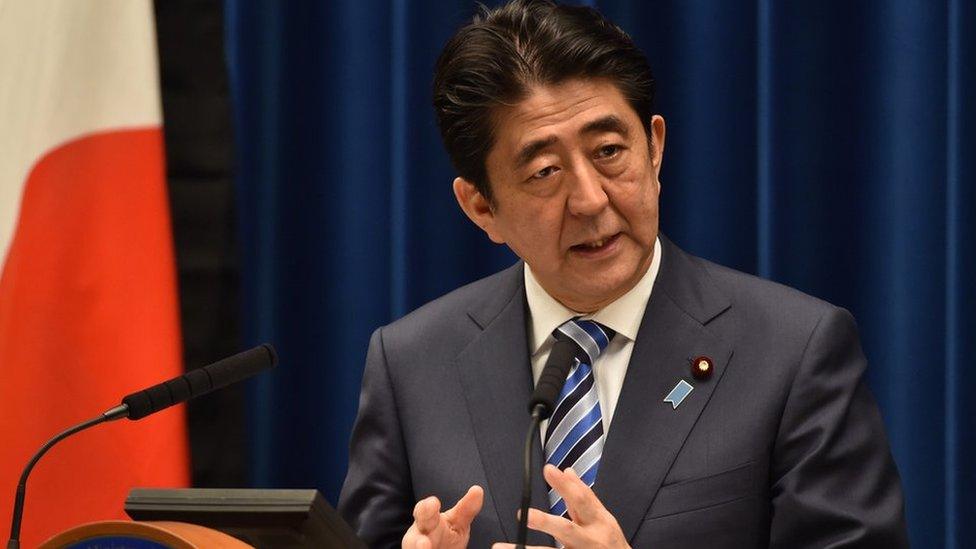
- Published27 December 2012
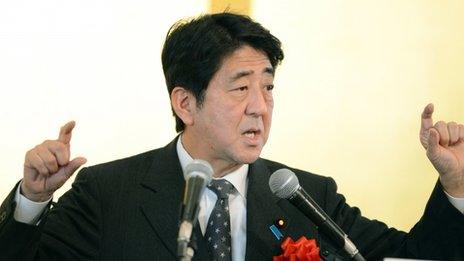
- Published17 December 2012
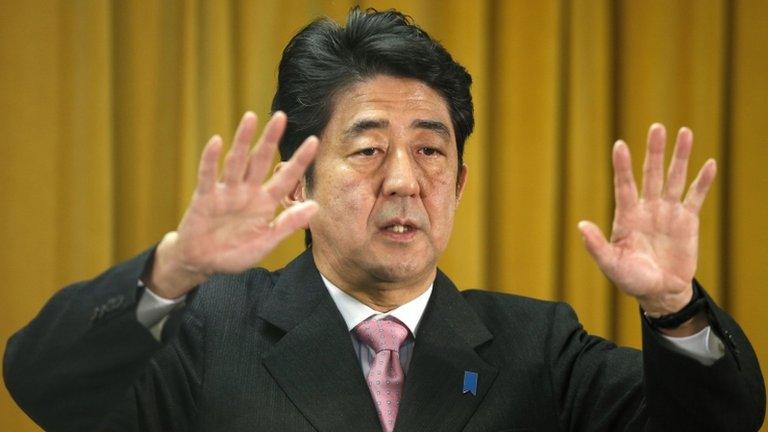
- Published17 December 2012
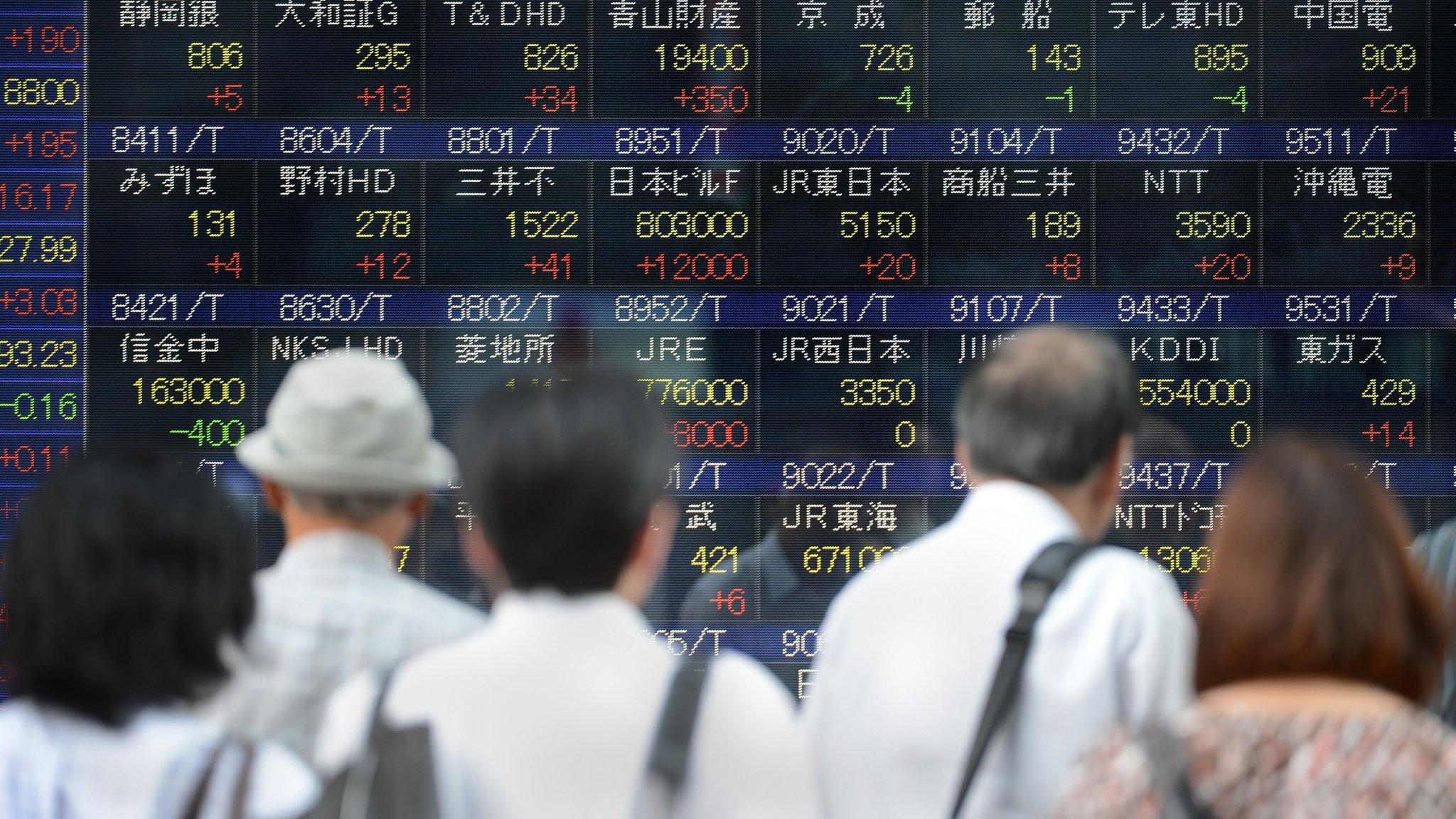
- Published15 December 2012
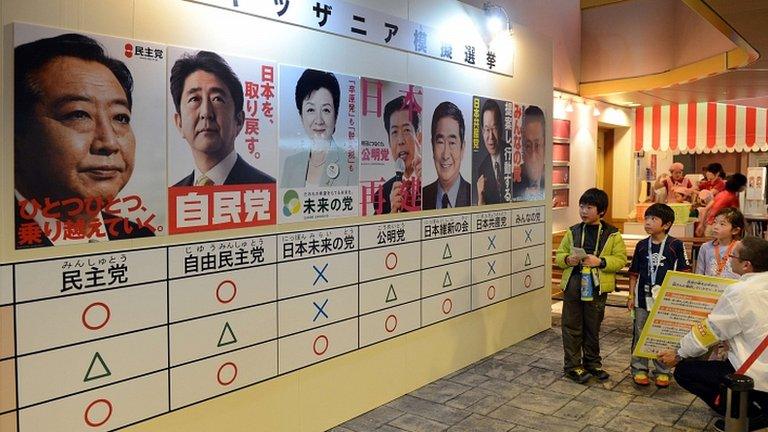
- Published14 December 2012
